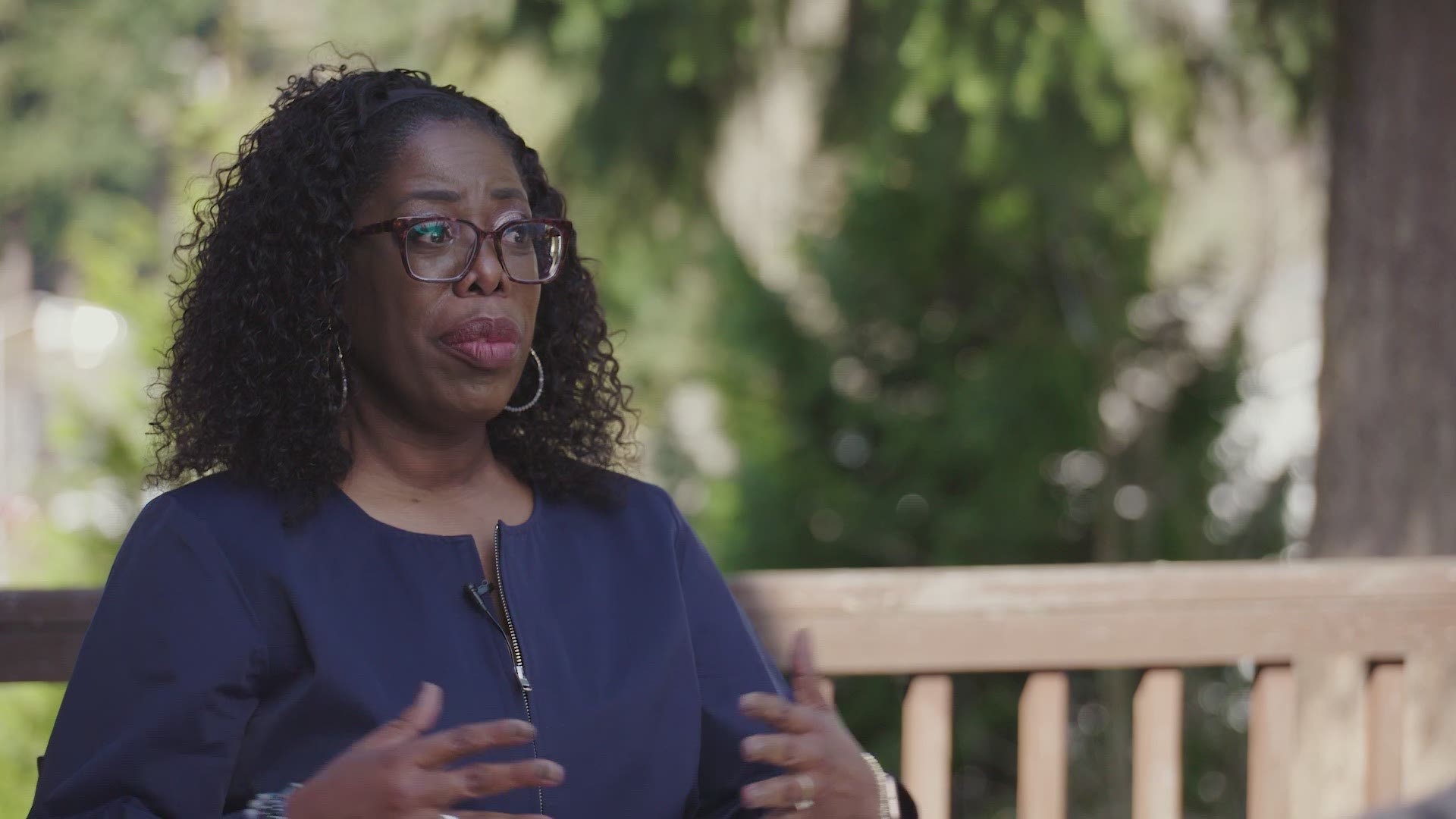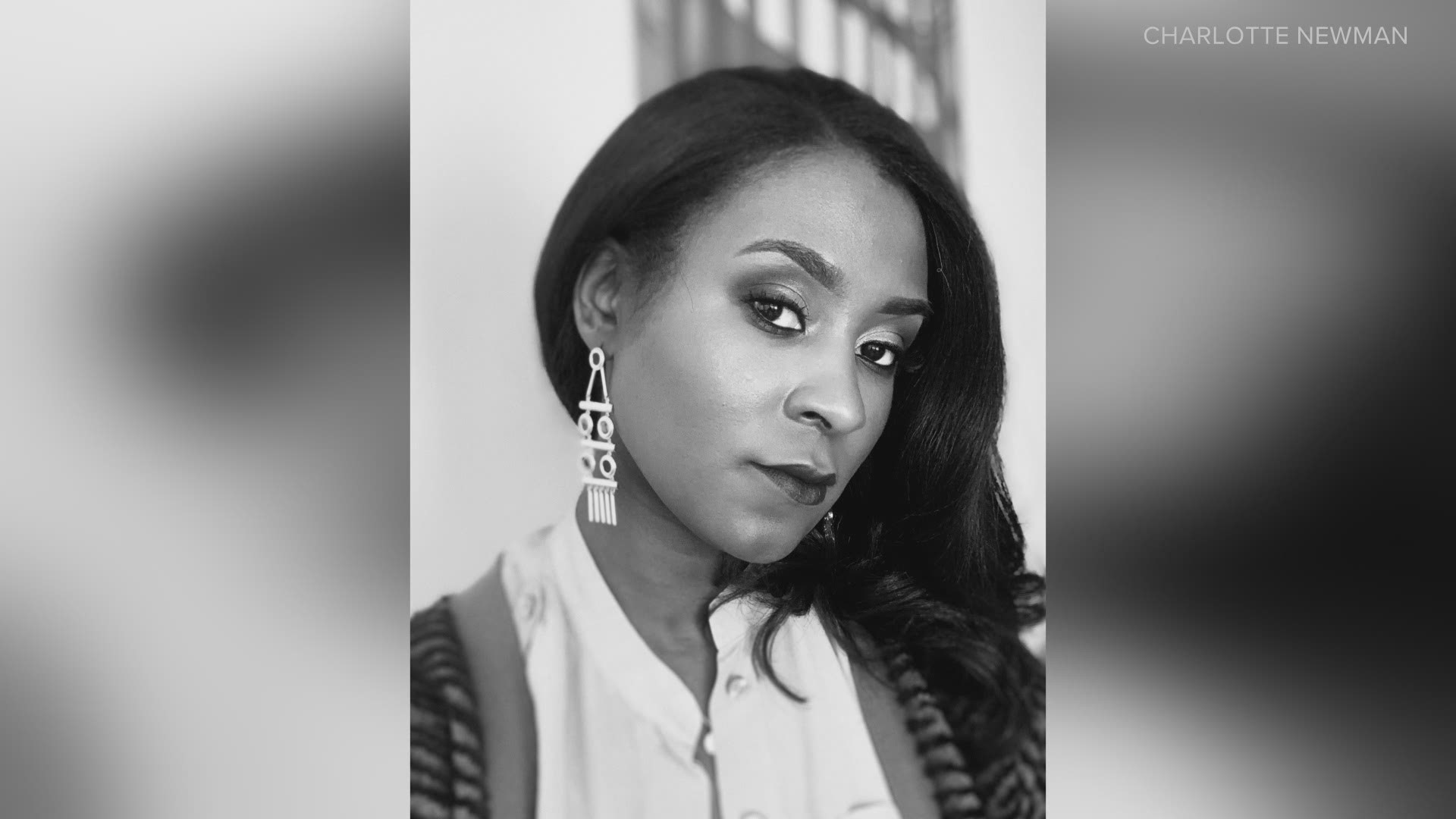SEATTLE — Chanin Kelly-Rae said the lack of ethnic diversity in upper-level management at Amazon was one of the first things that struck her when she walked onto the company’s Seattle campus for the first time.
“The only Black people that I saw every day were either opening doors or cleaning floors,” said Kelly-Rae. “As a woman that happens to identify as Black or African American, I was never as consciously aware of feeling very detached or different in the space as I was at the Amazon corporate campus.”
Kelly-Rae was hired as a global manager of diversity for Amazon Web Services in 2019. Her job was to help Amazon’s cloud computing service division increase diversity.
Amazon demographic data shows that 26% of its employees are Black or African-American. It sounds high, but most of those employees are part of the company’s lower-paid warehouse workforce. An Amazon spokesperson declined to provide KING 5 a breakdown of the company’s demographic data by job title, but critics say Amazon’s highest-paid employees are overwhelmingly white and male.
Kelly-Rae said the disparity gave her purpose.
“I felt that much more a sense of urgency that I want to do everything that I could, or knew to do professionally, to change the trajectory of access to opportunity on Amazon's campus and across Amazon's corporate infrastructure,” she said.
Last year, after George Floyd’s killing, Amazon committed millions of dollars to social justice organizations and displayed a Black Lives Matter banner on the company webpage. But Kelly-Rae said those words of solidarity did not align with company culture when it came to her budget as a diversity and inclusion manager.
“I had other leaders tell me that they had more money to buy t-shirts than I had for my program,” she said. “That tells you that they're not very serious, that a business team or an engineering team could have more money for swag than a Global Diversity Inclusion leader could have for their programming.”
Kelly-Rae said some of the highest-profile leaders tasked with increasing diversity at the company were inexperienced in basic principles of diversity and inclusion and Amazon denied them access to critical data to help them do their jobs.
Kelly-Rae isn’t alone. In February, the national publication Vox interviewed more than a dozen current and former Amazon employees who said the company marginalizes people of color.
Vox quoted a current diversity manager who, speaking anonymously, said for Black employees, “it’s harder to get promoted.”
The only employee who went on the record with Vox was Chanin Kelly-Rae, who told the publication: “It is not uncommon for women, and especially Black women, to have a role advertised at one level but extended an offer at a position that is lower.”
Amazon’s corporate hierarchy is comprised of a series of “levels.” At the top: outgoing CEO Jeff Bezos, the only level 12 employee. At the bottom: level four employees who are often entry-level or straight out of college.
Kelly-Rae had 20 years of experience in diversity and inclusion, which she said should have qualified her to come on board as a level seven employee. Instead, she was hired at level six, which she said confounded some of her colleagues and managers.
“People continued to quizzically ask, ‘Why in the world are you at a level six?’” said Kelly-Rae. She said two Amazon vice presidents and a recruiter eventually confirmed what she had suspected all along—that she had been “down-leveled,” dropped to a lower-paying job.
“My hiring manager told me, ‘You are clearly a level seven [employee] in the strongest sense of the word,” she said.
But Kelly-Rae said her position and pay never reflected that. Being “down-leveled” at Amazon can mean losing out on faster promotions and higher pay, including valuable company stock.
An Amazon spokesperson would not discuss whether Kelly-Rae was hired at the correct level, but sent a statement saying: “We work hard to make Amazon a company where our Black employees and people of all backgrounds feel included, respected, and want to grow their careers…We do not tolerate discrimination or harassment in any form.”
According to Amazon, it is not uncommon for people hired at the company to join at less senior levels than they had at other companies.
But Kelly-Rae said women and people of color sometimes face implicit bias in Amazon’s hiring process. As a diversity and inclusion manager, she said she was privy to complaints by employees who had witnessed down-leveling firsthand.
“I talked to lots of different people who talked about the challenge of bias during…the interview process,” she said. “I had people that were men, that self-identified as white men…that would come to me…They have watched and listened to gender bias and gender discrimination unfolding in front of their eyes.”
Kelly-Rae said an Amazon leadership tenet that insists that a new hire “earns trust” can be “weaponized” against diverse candidates to down-level them for being a poor “culture fit.”
In a lawsuit filed in February, Charlotte Newman, a current senior manager at Amazon Web Services accused Amazon of “a pattern of hiring Black employees at lower levels than comparable white employees, lessening their income and career prospects.”
“I really do think there's a systemic issue here,” said Newman. She said, like Kelly-Rae, she was hired as a level six employee, though she believes she should have been eligible for a level seven position.
“I interviewed for a role that would have required international responsibility, and it was a senior manager position,” said Newman. “And then I was hired and told, ‘Well, you know, we're going to bring you in as a manager, but you're only going to cover the United States.’”
Newman said her work would expand to include global work including international business trips, but for years, her pay did not increase with her responsibilities.
“There was a clear, almost like a bait and switch that occurred,” said Newman. “It was demoralizing to do work that I knew should have come with a higher title and greater compensation.”
Newman said she estimates that she lost out on millions of dollars in pay over the last four years before being promoted to a different division within Amazon Web Services. Amazon declined to speak to her allegations on camera, but a spokesperson told KING 5 that Newman “was properly placed in her role at the company.”
Newman said the discrimination went beyond promotion or pay. Her lawsuit details a business trip with co-workers in November 2019 during which she tried on a black jacket and a colleague told her, “Oh my God, you look like a gorilla.”
The lawsuit says on multiple occasions, Newman’s boss at Amazon, Steve Block, criticized her for speaking out in meetings, calling her “too direct,” “aggressive,” and “just scary.” According to the lawsuit, he told her “You can intimidate people.”
“I instantly recognized the language to be coded and stereotypical,” said Newman. “It just really kind of robbed me of my humanity in some ways. It was clear to me at that point that he was really viewing me through a very, very difficult and problematic lens.”
According to the lawsuit, “Amazon management’s dismissive attitude towards Black and female employees like Ms. Newman left her vulnerable to sexual harassment and assault by a senior coworker.”
Newman said a senior manager named Andres Maz harassed her repeatedly, including once at a corporate dinner.
“He, you know, reached under the table and started to grope my leg. And I froze and used kind of the need to go to the bathroom as an excuse to kind of get up from the table,” said Newman. “After the dinner, he begged me to go home and sleep with him."
In a statement, an Amazon spokesperson said, “We immediately investigated Ms. Newman’s sexual harassment claim and fired her harasser. The investigation also resulted in corrective action and additional training requirements for those in her reporting line… We are currently investigating the new allegations included in the lawsuit.”
But Newman said she continued to have to work in the same circles as Maz after she complained and that the process for reporting harassment at Amazon was unclear.
“I believe that Amazon could do so much more to protect its employees so that no one else has to experience what I have,” Newman said.
Newman and other employees wrote a document in 2016 urging Amazon to adopt some policy changes to promote equity, but she said to her knowledge, the policies were never implemented.
Chanin Kelly-Rae left Amazon in September 2020. Looking back, she said change at Amazon will only happen if it begins at the top, with
“In order to advance diversity and inclusion as best practices, you have to have people at the top that understand the discipline,” said Kelly-Rae. “They don't have someone who is familiar with the discipline of diversity management on the S-team.”
In 2019, Amazon added former General Motors executive Alica Boler-Davis to the S-team. She is the first Black woman to become a senior vice president in Amazon’s 26-year history.
Kelly-Rae applauded the move, but said it’s not enough.
“I've shared with senior-most leaders that either Amazon doesn't understand diversity management as a discipline, or they have no respect for it,” said Kelly-Rae. Apart from a meeting with the human resources department of Amazon Web Services, Kelly-Rae said “nothing came of that conversation.”
Kelly-Rae is now running her own diversity and inclusion firm, Chanin Kelly-Rae Consulting.
“I felt like, at some point, somebody has to be very brave, and be willing to take the blows and slings and arrows in order to stand on principles,” she said. “I am not somebody that is willing to compromise my values.”
Amazon, she said, was ultimately not the place for her values.
“There is a culture of fear of speaking up or pushing too hard or being too loud, and that has to change.”
Amazon has until May 3 to file a legal response to Newman’s lawsuit.
In September 2020, Amazon agreed to release detailed racial, ethnic and gender data that the company collects for the Equal Employment Opportunity Commission. A spokesperson offered no timeline for the release of the information.


